We talk to West African Health Organisation (WAHO) about exploring a borderless future for the health sector in West Africa in the wake of COVID-19.
- INTRODUCTION
- Q&A: WEST AFRICAN HEALTH ORGANIZATION (WAHO)
- Can you talk us through the origins of WAHO, how it came about, and its initial vision?
- Since inception, how has WAHO developed and progressed in terms of its key objectives and the messages it tries to get across?
- What do you find most exciting about working in West Africa’s healthcare sector?
- On the flip side, what are its biggest challenges?
- How has WAHO navigated the COVID-19 pandemic?
- What trends are currently transforming the sector? How are you responding to them?
- Has WAHO got any projects in the pipeline you wish to highlight?
- How do you see the organisation developing over the next five years?
INTRODUCTION
The healthcare sector across Africa is fraught with challenges. Faced with limited infrastructure, critical care capacity, and extreme labour shortages worsened by talent migration, the conditions facing the continent’s most fragile health systems have been exacerbated by the onslaught of the COVID-19 pandemic. Indeed, the level of skilled health workers across the continent as a whole has now fallen 60 percent below the United Nation’s minimum threshold. According to a McKinsey report, sub-Saharan Africa has only one to five percent of the ICU beds per capita, compared to European and East Asian countries, while the population bears nearly twice the disease burden per capita, measured by disability-adjusted life years (DALYs), compared to the rest of the world.
In the realm of West Africa, the formation of the Economic Community of West African States (ECOWAS), seeks to consolidate the region to further strengthen its key sectors. Unsurprisingly, healthcare is a key staple of this. Founded in 1975, the fifteen regional members of ECOWAS comprise Benin, Burkina Faso, Cape Verde, Cote d’ Ivoire, The Gambia, Ghana, Guinea, Guinea Bissau, Liberia, Mali, Niger, Nigeria, Sierra Leone, Senegal, and Togo.
Fostering the idea of self-sufficiency amongst its Member States, ECOWAS’ efforts in healthcare are embodied by the West Africa Healthcare Association (WAHO), which as a specialised agency enjoys administrative and financial autonomy.
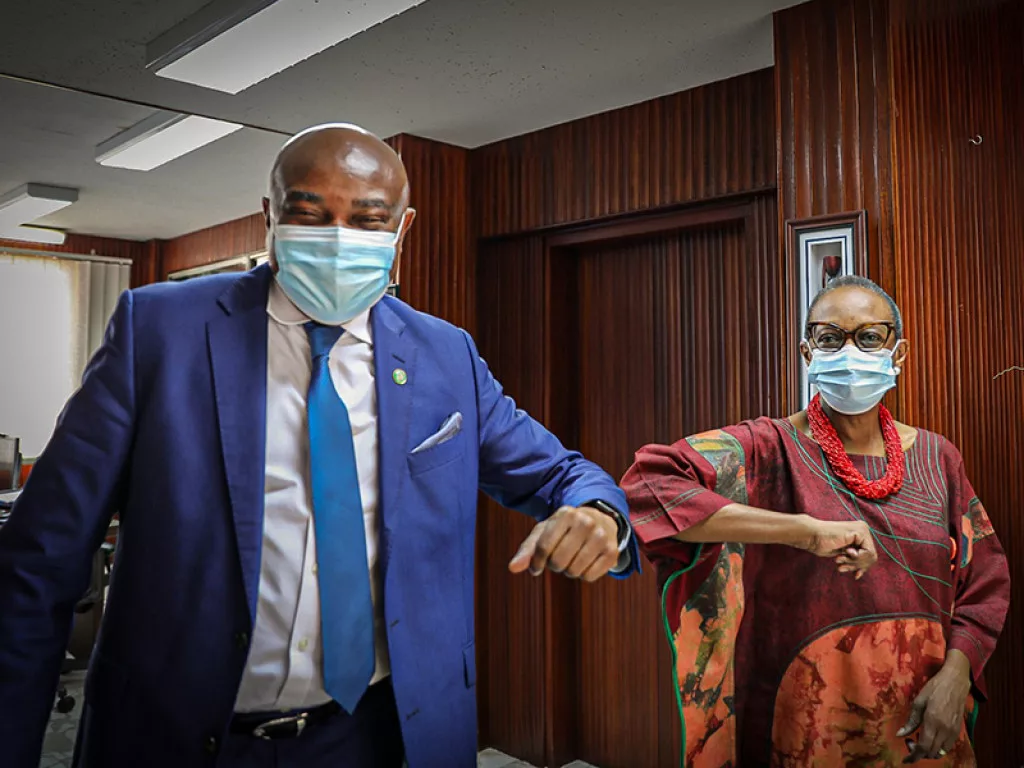
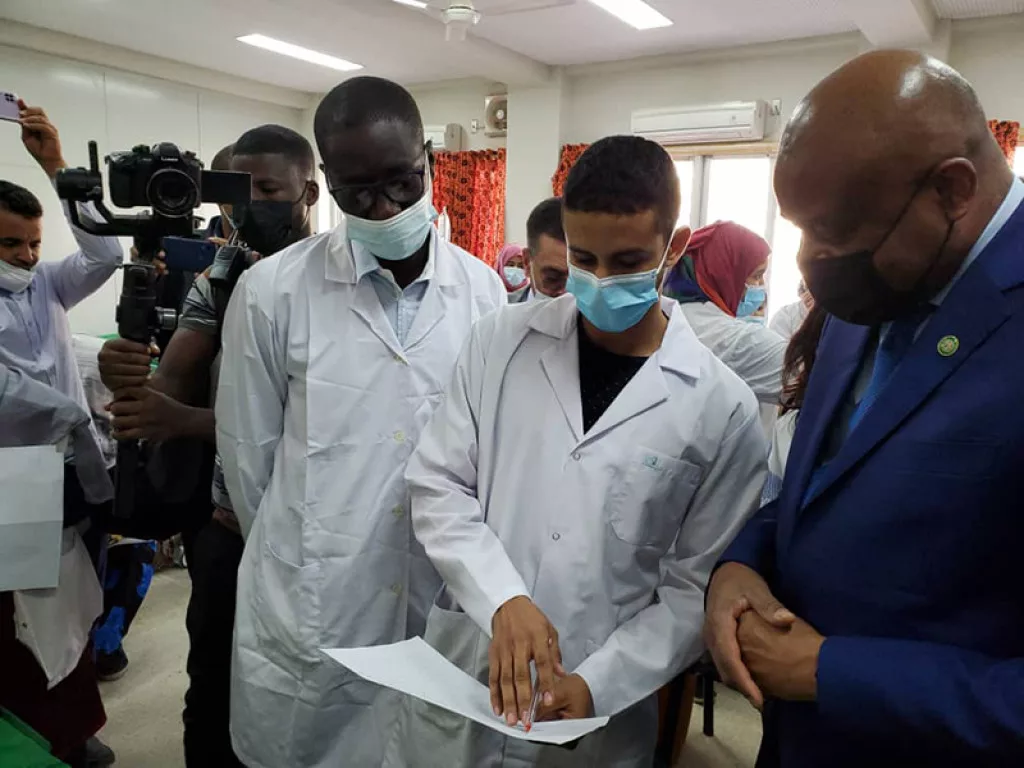
Q&A: WEST AFRICAN HEALTH ORGANIZATION (WAHO)
Director General at WAHO, Stanley Okolo, shines a light on regional health integration and the current state of healthcare in West Africa
Since 1987, WAHO has operated as the pro-active, consolidated body dedicated to improving the state of healthcare across West Africa through regional integration. Acting as the bridge between both Member States and the regional community, WAHO continues to advance a high-impact and cost-effective healthcare agenda for the region. We find out more with Director General, Stanley Okolo.
Can you talk us through the origins of WAHO, how it came about, and its initial vision?
Stanley Okolo, Director General (SO): WAHO was created by a protocol A/P2/7/87 adopted by the Heads of State of the Economic Community of West African States (ECOWAS) on 9 July 1987. This protocol originated from a November 1984 decision of the ECOWAS Council of Ministers that approved the merging of the West African Health Community (WAHC) based in Lagos and covering the five English speaking countries and the “Organisation de la Cooperation et de la Coordination pour la lute contre les Grandes Endémies” (OCCGE) based in Bobo-Dioulasso and involving French-speaking countries. WAHO was established with the mission of “the attainment of the highest possible standard and protection of health of the peoples in the sub-region through the harmonisation of the policies of the Member States, pooling of resources, and co-operation with one another and with others for a collective and strategic combat against the health problems of the sub region.” Its initial vision is “to be a pro-active tool to facilitate regional health integration.”
Since inception, how has WAHO developed and progressed in terms of its key objectives and the messages it tries to get across?
SO: From the creation protocol, the main objectives of WAHO are as follows:
• Promote research into the major endemic diseases in the region and undertake activities aimed at controlling these diseases and their eradication.
• Promote the training of medical specialists and of paramedical personnel, and where necessary, support the training of future medical graduates.
• Collect and disseminate technical information, epidemiological and others related to health research and training in Member States.
• Assist in the establishment of technical information centres in Member States.
• Promote and harmonise the establishment of laboratories for the production of vaccines, medicines manufacturing and quality control in the region.
• Encourage cooperation in the control and eradication of drug dependency and abuse in the region.
• Promote exchange of personnel and health technologies among Member States.
• Provide advice on all health-related aspects of development projects to Member States.
• Support the strengthening of health services and infrastructures of Member States.
• Provide assistance to Member States to resolve health problems in the event of emergencies following natural disasters.
• Collaborate with sub-regional, regional and international organisations to address health problems in the region.
• Promote cooperation between scientists and professional groups contributing to health development.
• Propose conventions, agreements, regulations, and recommendations on regional health issues and undertake tasks entrusted to the organisation in this regard.
Therefore, since its inception, WAHO has developed several strategic plans in collaboration with stakeholders in order to implement its stated objectives.
At this juncture, WAHO has had strategic plans for the following periods: 2003-2007 for the first strategic plan, 2009-2013 for the second, and 2016-2020 which the third strategic plan covered. Currently, WAHO’s Vision 2030 Strategic Plan, its fourth, was recently adopted by the ECOWAS Ministers of Health, and the plan for its implementation through the years is in progress.
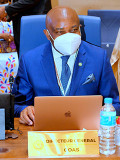
“The objective is for WAHO to be known throughout the region as the public health powerhouse the founders intended it to be”
Stanley Okolo, Director General, WAHO
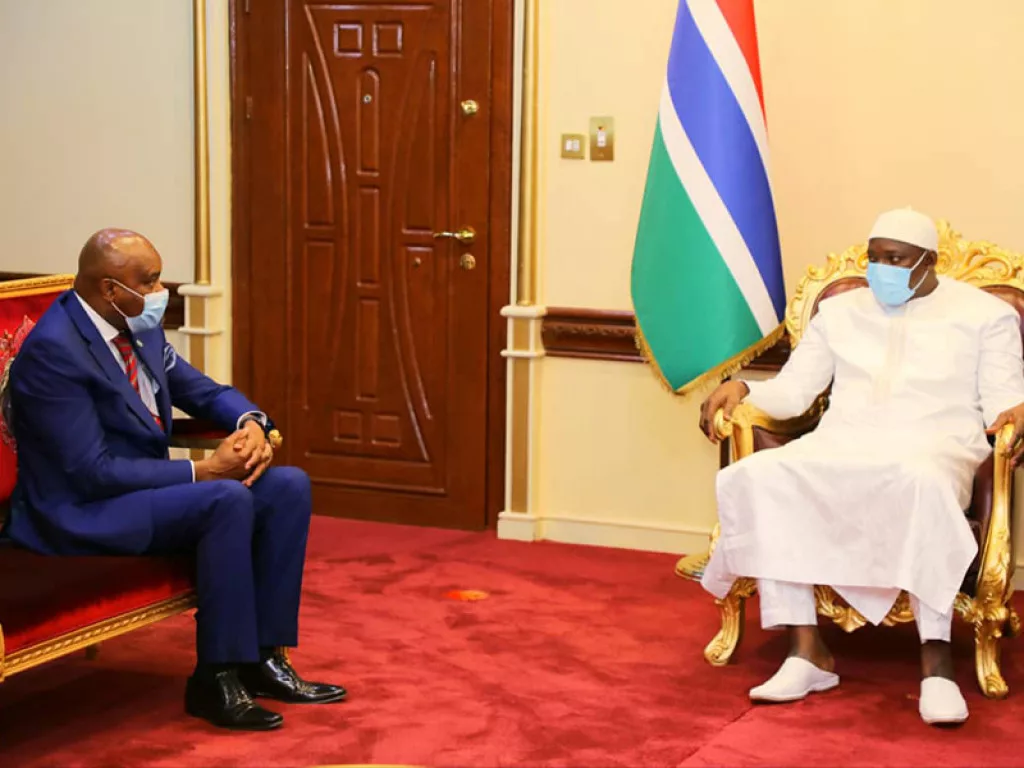
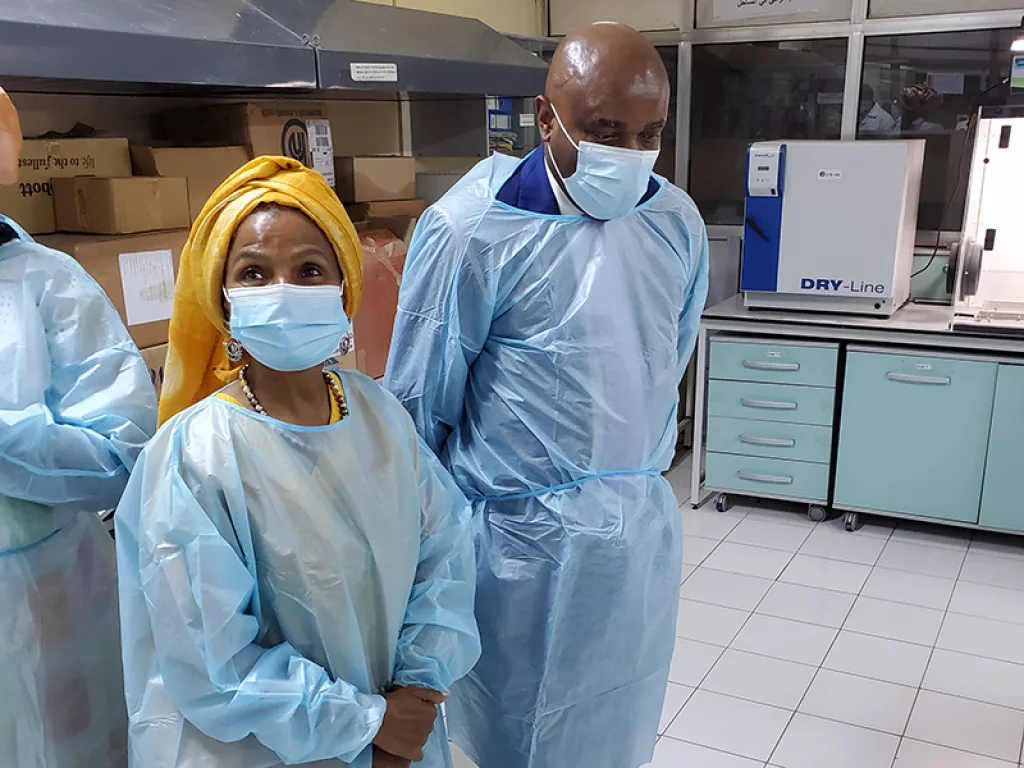
What do you find most exciting about working in West Africa’s healthcare sector?
SO: The most exciting considerations about working in West Africa’s healthcare sector is WAHO’s political mandate that allows it to work with the Heads of State and Governments, the ECOWAS Health Ministers, partners, and the regional community in a variety of health areas. For instance, the project Sahel Women’s Empowerment and Demographic Dividend (SWEDD) project, is a World Bank funded project, that targets amongst many of its objectives, reduction of total fertility rates (TFR), in the West African region, and reduction of maternal and child mortality rates. What is exciting is that, although fragmented in theoretical concepts in terms of funding, implementation, and end beneficiaries, the objective is achieved through the synergistic efforts of all involved. Many of WAHO’s projects are indicative of this kind of synergy. As a result, (i) partners and countries have confidence in WAHO; (ii) partners and countries continue to contribute to WAHO’s activities; (iii) there are measurable changes in the different health systems and an improvement to regional collaboration; and (iv) Member States are more inclined to adhere to the resolutions and guidelines proposed by WAHO at the ECOWAS Assembly of Health Ministers.
On the flip side, what are its biggest challenges?
SO: WAHO’s biggest challenge includes the chronic issue with human resource capacity both internally and at national level, that prevents WAHO from attaining its maximum potential. Other notable challenges include balancing the interests of external funders and the objectives of regional health interventions most beneficial to the ECOWAS population, increasing WAHO’s visibility throughout the region and the global stage particularly when communicating WAHO’s interventions to ECOWAS Member States. Although progress has indeed been made in the region when considering some of the health indices that were previously reported in areas such as maternal and child mortality, and prevalence of non-communicable diseases, the current regional health indicators remain a challenge due to a myriad of factors.
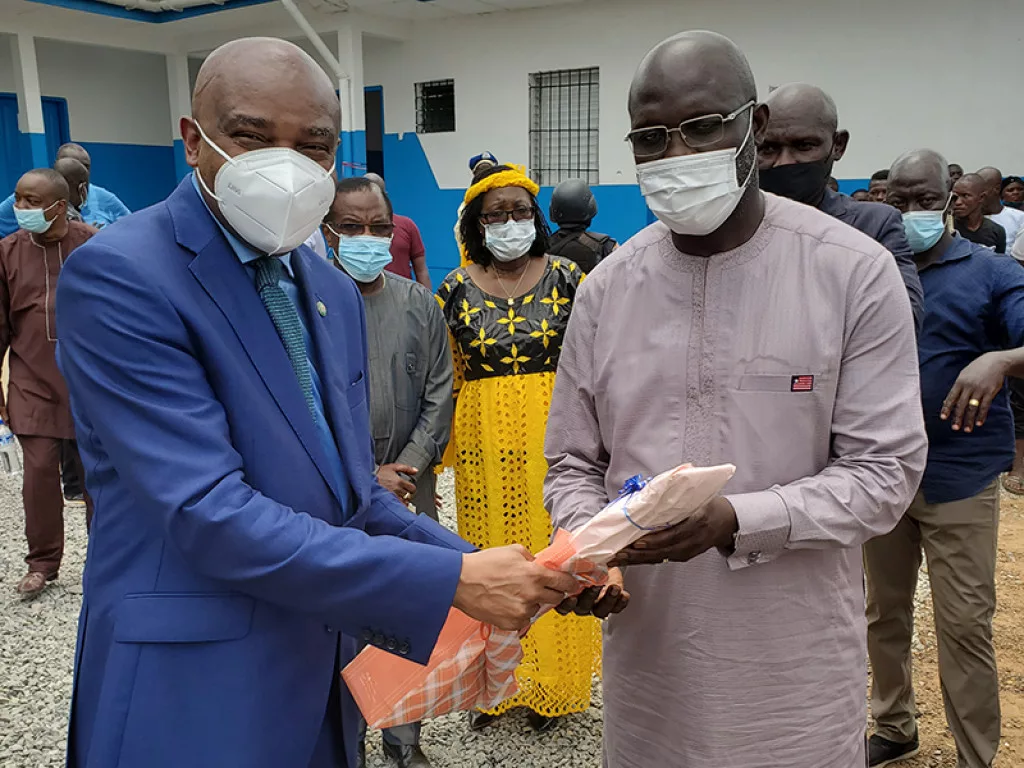
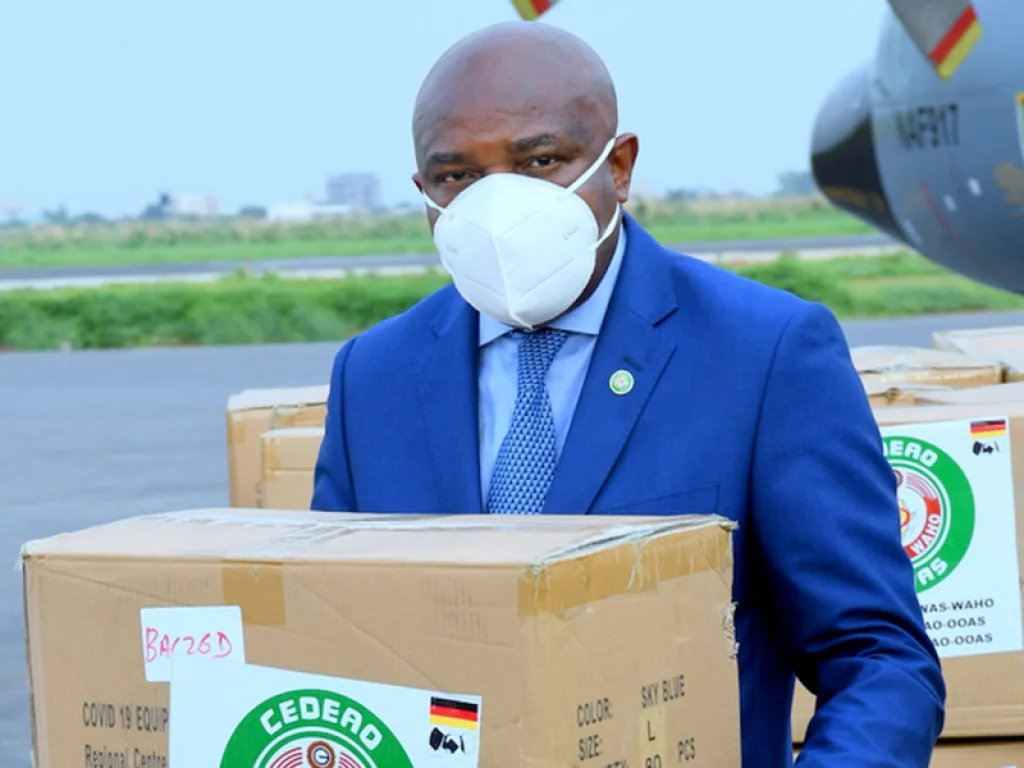
How has WAHO navigated the COVID-19 pandemic?
SO: On February 14, 2020, before the first COVID-19 case was even reported in the region, WAHO convened an emergency meeting of the ECOWAS Ministers of Health to agree on a regional approach on coordination, collaboration, and communication to mitigate the impact of the pandemic in our region. WAHO and the Health Ministers agreed on the use of rapid response teams deployed from WAHO, create a regional commodity stock as there were serious shortages at the time, raise funds for the region and maintain regular communications.
The fundraising efforts were successful by all accounts, as WAHO was able to raise significantly more than the target of USD 51 million for procurement of medical goods such as PPEs, mechanical ventilators, diagnostic test kits, etc. In addition, the funds went towards distribution of the goods to all Member States, and training for frontline healthcare providers and laboratory technicians. The procurement and delivery of the critical medical products was facilitated through the support of the federal government of Nigeria through its provision of a storage warehouse for storing the procured goods and equipment and a military aircraft used to distribute the goods to 13 of our 15 member states. The two exceptions were of course Nigeria and Ghana. In this case, Ghana sent its military plane to Nigeria to accept the goods.
In response to the border closures, WAHO worked with the ECOWAS Ministers of Health and Transportation to develop a harmonised protocol to provide guidelines such as non-pharmaceutical measures for land and air travels, testing and entry protocols, costs of PCRs and digitisation of test results for regional travel to minimise fraudulent results through recognised laboratories.
The process of digitising the tests was developed in collaboration with PanaBios, and the plan is to maximise its use throughout the 15 member states. Another notable contribution from WAHO to the regional response efforts to COVID-19 was the support given to Institut Pasteur in Dakar, (IPD), in the form of seed funding to produce rapid diagnostic test kits.
Note that there was support and collaboration from partners such as the Africa CDC ensuring that our response efforts were optimal for the West African ECOWAS population.
What trends are currently transforming the sector? How are you responding to them?
SO: The health sector is truly unique, and its evolution is a constant. The current pandemic brought into even greater focus what is required to transform the health sector, particularly in our region. The shortage of critical materials, medical equipment, and later COVID-19 vaccinations at the height of the pandemic accelerated the need for local production of pharmaceutical and non-pharmaceutical goods. WAHO has been a dedicated force in pushing this agenda. Not only has WAHO guided our external funding partners in recognising the readiness of Member States to boost local production, WAHO has also been working with several of our laboratories in the region that are progressively advancing this initiative. For instance, the Institut Pasteur Dakar (IPD), plans to commence production of COVID-19 vaccines in the coming months. The pandemic also exacerbated chronic issues such as reduced access to healthcare. Thus, another trend is the advocacy for Universal Health Coverage within the region. WAHO’s response to this trend has been just as dedicated. Not only did WAHO convene the very first UHC Summit with the ECOWAS Ministers of Health and other key members of the government sector, which led to the Accra Declaration where countries pledged to work collaboratively to develop meaningful strategies and legislative interventions to promote UHC.
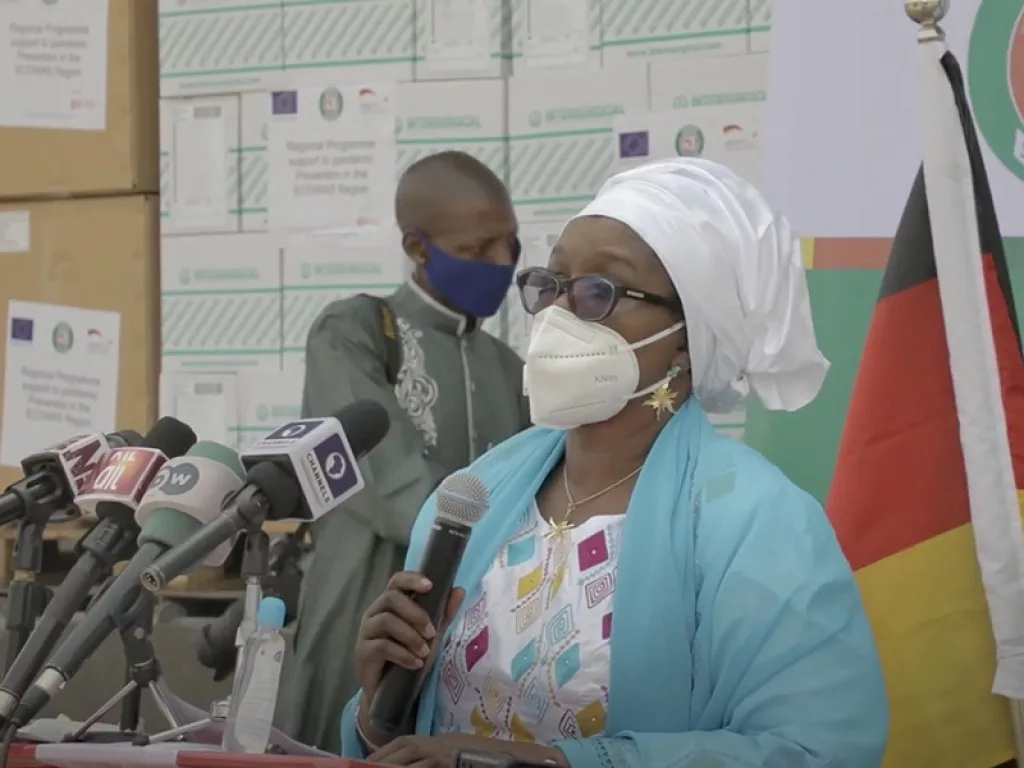
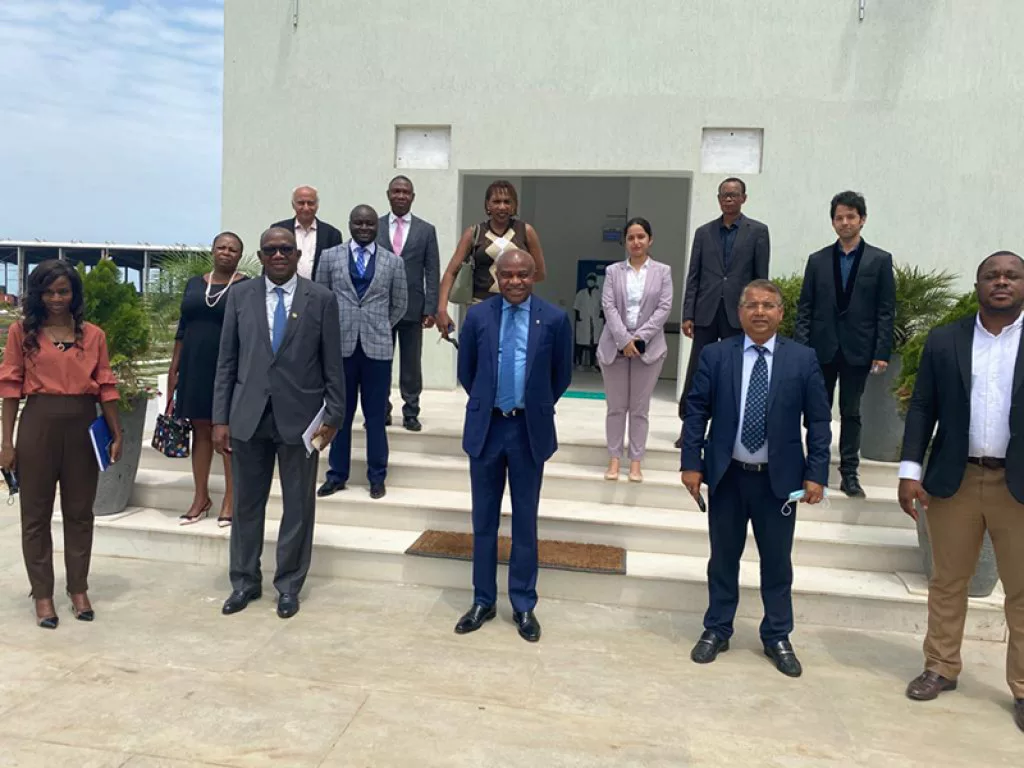
Has WAHO got any projects in the pipeline you wish to highlight?
SO: Acceleration of local production of vaccines and medications to reduce the dependency on foreign imports. The successful launching of the West African Medicines Regulation and Harmonisation programme ensures that the incentive to locally produce is at the fore moving forward. In addition, this initiative leads to a heightened level of pharmaco-vigilance in the regions that ensures only high-quality and safe drugs are circulated within the pharmaceutical markets in the ECOWAS region.
How do you see the organisation developing over the next five years?
SO: WAHO’s plan over the next five years is to continue to build its institutional capacity by ensuring heightened visibility, high-quality outcomes of projects and programmes, and the full operationalisation of the Regional Centre for Surveillance and Disease Control, currently functioning at half-capacity. The objective is for WAHO to be known throughout the region as the public health powerhouse the founders intended it to be.






















